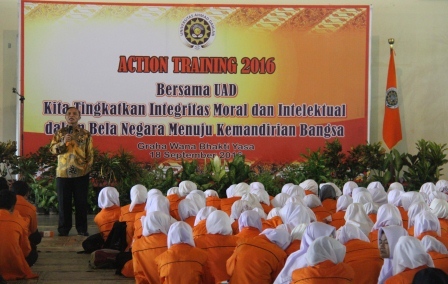Reading from Foreign Labours in Indonesia
"In terms of employment, AEC (ASEAN Economic Community) not only create a threat but also open up business and employment opportunities. Therefore, it is important for the government and all parties to prepare short-term programs to improve Indonesian labour productivity, "said Ani Muttaqiyathun, S.E., M.Si. the head of Management Department of Faculty of Economics, University of Ahmad Dahlan (UAD) Yogyakarta when attending a program at Radio of Sonora Jogjakarta, Thursday (08/18/2016).
Ani continued, ‘This can be focused on the improvement of human resource policy in the sector of Micro, Small and Medium Enterprises (SMEs) and the labourers are not only be prepared for large-scale enterprises. Through the entrepreneurship establishment program in the SME sector, Indonesia will continue to be the host for their own country. The number of national entrepreneurs just about 0.18 percent of the total population. Meanwhile, to support high economic growth and sustainable development, Indonesia needs a number of entrepreneurs of more than 2 percent of the total population, or about 4 million people.
At the beginning of this year, many media reported that thousands of foreign laborers (TKA) entered the country. This is confirmed by the Ministry of Labour. However, he argued that the number of foreign labourers is less than 0.1 percent of the total number of laborers in Indonesia (with a working age group about 129 million). On average the figure ranges from about 70 thousand people each year. The types of foreign labours occupation in general are professionals, directors, managers, advisors / consultants, commissioners, qualified technicians, and expert supervisors.
In the minister of labour and transmigration regulation No. 12 year 2013 it is mentioned, among others; only an incorporated company that is permitted to employ foreign labour; only four types of temporary jobs which are permitted: machine installation, electrical, after-sales service, and business introduction products; and foreign labour should be able to show a certificate of competency or have at least five years experience in that field.
Based on the MRA (Mutual Recognition Arrangement) which has been acknowledged by ASEAN countries, there are just eight proffesions agreed. The occupation should be specific and not general, and only permitted for educated foreign labourers who master the skills and professional speciality. The eight profesional professions are engineers, nurses, architects, surveyors, accountants, medical practitioners, dentists, and tourism workers.
Foreign labors looking for a job in Indonesia within the framework of MEA should be skilled labours. They should follow the labor law. These are related to MRA matters, so there should be common standards of the competencies.
"The point is someone who is considered to be skilled in our country, it is also considered the same or equivalent in other countries," he concluded. (dock)


